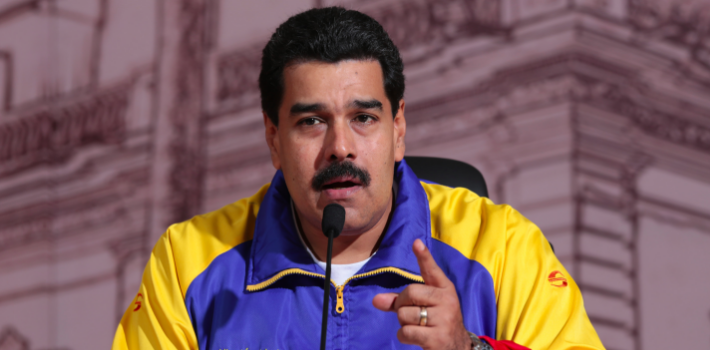
EspañolVenezuela is arguably living its worst tragedy since gaining independence from Spain over 200 years ago.
Having lost its democratic institutions, the South American nation has become a dictatorship. The socialist model imposed by the late leader Hugo Chávez has been shattering the economy for over 15 years.
People are dying due to the lack of medicine, lack of food, and basic products. Crime is rampant.
- Read More: It’s High Time We Called Nicolás Maduro a Dictator
- Read More: Venezuela Has All But Cancelled the Recall Referendum against Maduro
But the tragedy does not end there. The paths required to solve this critical situation have been taken off the table.
I do not mean to be an irrational pessimist or to exaggerate the stakes at play. However, I do believe that Venezuela’s opposition and the international community are, willingly or not, collaborating to keep Nicolás Maduro in power.
The Vatican, for example, has openly called for the opposition to sit down and talk with the regime. There is nothing wrong with that in principle, if it were not because the agenda excludes every important point.
Moreover, international mediators such as José Luis Rodríguez Zapatero have been outspoken advocates of the Chavista regime. And to top it all, the so-called dialogue started at the worse time possible for those who oppose the regime.
The talks began when the opposition coalition, the Democratic Unity Roundtable (MUD), had already undertaken actions to oust Chavismo from power.
They had called on Venezuelans to march to the gates of the presidential palace — which the dictatorship has banned for 15 years — while Congress was triggering a legal procedure to impeach Maduro.
These were actions that truly worried the regime, but the opposition abruptly called them off, arguing that they had to give Maduro something in return to start the negotiations.
However, the dictatorship hasn’t given anything back, only a symbolic but irrelevant measure: it released five of the 111 political prisoners that it keeps in conditions that clearly violate human rights.
Only one opposition leader, the fearless María Corina Machado, has raised her voice against the MUD’s surrender that legitimizes the dictator and buys him more time.
The former congresswoman stated bluntly: “These are not times to yield; these are moments to move forward!”
We cannot know to what extent will Venezuelans — living in desperate conditions, but afraid of the government’s harsh repression — follow her call.
In my opinion, prospects are not good. The MUD leadership will only be able to get empty promises or worthless concessions from the regime. In addition, foreign governments have no interest in the fall of Maduro.
This last statement perhaps may seem exaggerated, but neither the United States nor the European nations are too concerned about the existence of another dictatorship in our planet.
They want stability above all things, no matter the cost. These countries rule out any kind of military intervention, even the most benign ones, as an almost mortal sin. And with this attitude, they prevent the only real possibility for Venezuela to return to democracy and overcome its devastating economic crisis.
Dictators like Maduro, emboldened by the support of the corrupt military and armed civilian groups, cannot be removed from power through friendly talks, mere street protests, or parliamentary resolutions.
The use of force, or at least the threat of it, is needed so they make real concessions or relinquish power. But if they know that the international community prohibits any action beyond words, they feel confident and calm.
Regimes imprison and shoot protesters knowing that each prisoner is a bargaining chip that lets them carry out, with no hurries, endless negotiations and “dialogues” with a weak opposition.
As Latin Americans we feel sorry for our dear Venezuela. Although not impossible, it is unlikely that its oppressive regime will end soon.
With the help of the Vatican, Zapatero, the United States, and the MUD, the Maduro dictatorship has nothing to worry about.
 Versión Español
Versión Español












